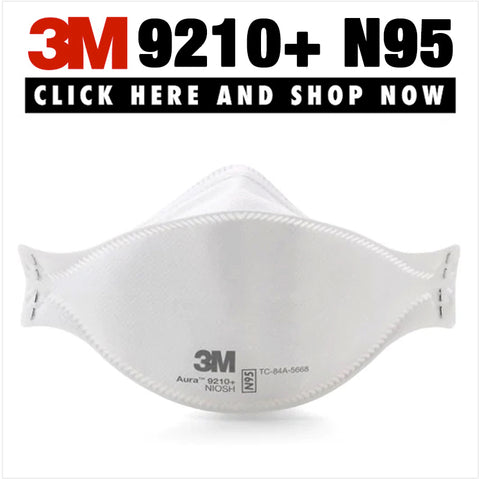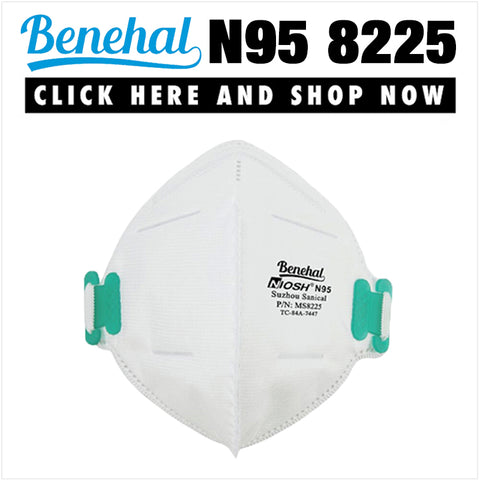More Pediatricians Using N95 Masks
Posted by S. Kit on
Pediatricians and other healthcare professionals who work with children are on the front lines of the COVID-19 pandemic, providing essential care to some of the most vulnerable members of society. The use of N95 masks can provide an added layer of protection for both pediatricians and their patients.
N95 masks are respirators that are designed to filter out at least 95 % of airborne particles, including those that are too small to be seen with the naked eye. These masks are tested and certified by the National Institute for Occupational Safety and Health (NIOSH) to ensure that they meet strict standards for filtration and breathability.
Read more: COVID Vaccines Are Safe For Kids
One of the main benefits of pediatricians using N95 masks is the protection they provide against airborne particles. During pediatric consultations and procedures, children may release a variety of particles into the air, including saliva, blood, and other bodily fluids. These particles can contain pathogens that can cause infection, including COVID-19.
N95 masks can protect pediatricians and other healthcare professionals from inhaling these particles and contracting the virus. They also provide protection for children by reducing the risk of exposure to airborne particles that may contain the virus.
Another benefit of N95 masks is that they are designed to fit tightly to the face, creating a seal around the nose and mouth. This seal helps to prevent particles from entering the mouth and nose, providing an additional layer of protection. This is particularly important for children as they may not be able to wear masks as effectively as adults and may have smaller faces.
Read more: Schools Reinstating Mask Mandates
In addition to protecting against airborne particles, N95 masks can also protect against droplets that are released when a person speaks, coughs, or sneezes. These droplets can contain the virus and can be a major source of transmission. N95 masks can help to reduce the risk of exposure to these droplets and protect against infection.
Another benefit of N95 masks is that they are designed to be disposable, which means that they can be easily replaced after each use. This ensures that pediatricians and other healthcare professionals are using a fresh mask for each patient, reducing the risk of contamination.
However, it is important to note that the N95 masks are not the only protection that should be used. The Centers for Disease Control and Prevention (CDC) recommend that healthcare professionals also use additional personal protective equipment (PPE) such as face shields, gowns, and gloves.
Furthermore, it's also important to note that the N95 mask should be fitted properly to ensure the best protection. Pediatricians and their staff should be properly trained on how to properly wear and fit the N95 mask.
Read more: More Dentists Using N95 Masks
It's also wroth mentioning that children may feel uncomfortable and anxious when seeing a healthcare professional wearing an N95 mask. Pediatricians should take the time to explain to children why they are wearing the mask and make them feel at ease.
In summary, the use of N95 masks can provide an added layer of protection for pediatricians and their patients during the COVID-19 pandemic. These masks can protect against airborne particles, droplets, and other sources of infection, and can be easily replaced after each use. Pediatricians and other healthcare professionals should use N95 masks in combination with other PPE and be properly trained on how to wear it. With the ongoing pandemic, the use of N95 masks is an important step in ensuring the safety of both healthcare professionals and children. It's also important to make children feel at ease while using N95 masks and explain the reason why they are wearing it.
← Older Post Newer Post →


